‘Afghanistan terrorist attacks show certain plots hatched to shatter religious, ethnic unity’
A senior expert on regional issues has predicted that bloody terrorist attacks against Shia Muslim religious sites, gatherings and oppressed people in Afghanistan would continue, as the fledgling Taliban government is not in a strong position to prevent recurrence of such criminal acts.
Saadollah Zarei wrote in an opinion piece published in the Kayhan daily newspaper that the large explosion, which hit a Shia mosque in Afghanistan’s southern city of Kandahar and left dozens of people dead and wounded last Friday, took place exactly a week after a similar incident in the northern city of Kunduz.
The number of terrorist acts in Afghanistan has soared to 36 ever since the Taliban came to power on August 15, the analyst said, adding that the attacks have not been confined to Shia Muslim congregational sites.
“A simple survey of recent developments shows the attacks are mainly aimed at Shias of Afghanistan and their religious gatherings,” he wrote.
Zarei pointed out that the two bloody explosions against Shia mosques in Afghanistan’s Kandahar and Kunduz, which occurred within one-week time span, are indicative of certain schemes against Afghanistan in general and its Shia community in particular.
He added that the deadly blasts have not only undermined Afghanistan’s security, but have also harmed the country’s ethnic and religious fabrics.
“One, therefore, cannot expect followers of a stricken religious community to abandon recompense for the blood of their martyrs, and to absolve the ruling government of its responsibilities,” Zarei stated.
The senior expert highlighted that Kandahar is the spiritual birthplace of the Taliban, and leader of the movement Hibatullah Akhundzadeh resides in the city. This means that Afghanistan's second largest city should naturally enjoy a higher level of security than other parts of the country, especially when it comes to observance of religious rituals.
“The Taliban's argument that Shias took responsibility themselves for the security of their Friday prayers, and the group has no liability, is utterly unacceptable. The Shia mosque is situated in a neighborhood of the city and has come under attack there,” he commented.
Zarei underscored that the Taliban have been in control of Kandahar for the last 15 years, and run its security affairs.
“If the Taliban are so incapable of providing security in their own spiritual heartland, how can they establish security nationwide, particularity in the central, northern and eastern parts of Afghanistan where they have not been in control for years?” the expert questioned.
Zarei said the Daesh Takfiri terrorist group belatedly claimed responsibility for the terrorist attack against Kandahar Shia mosque, while it immediately declared responsibility for the bloody explosion in Kunduz.
“The United States and former Afghan government relied on Daesh to create insecurity and justify their actions. Over the last decade, especially during the past four years, Daesh elements have helped advancement of the policies of the United States, Saudi Arabia, and occasionally Pakistan, in Afghanistan.
“Daesh has fueled sectarian and religious strife in Afghanistan, and acted as a counterweight to the Taliban in favor of the United States and government of deposed president Ashraf Ghani. Unlike Iraq and Syria, Daesh has no base in Afghanistan and its terror cells have just carried out hit-and-run attacks. It is believed that Daesh is not present anywhere in Afghanistan,” he said.
Zarei then questioned the motive behind terrorist attacks claimed by Daesh, given the fact that neither is the United States militarily and politically present in Afghanistan nor is Ghani's government in power.
“It is also unacceptable to believe that Daesh carries out its acts of terror randomly and without a scenario devised beforehand,” he said.
The political commentator stressed that Afghanistan cannot stay in vacuum for long and even though its security balance has changed, its identity and essence has not been lost on the other hand.
“Afghanistan is now at a critical juncture in terms of security. One option is to maintain the previous form of coalition and security balance, which was in effect both during the Taliban's five years in power and last 20 years, and means the continuation of Saudi and Pakistani dominance on the whole and that of the US in particular. Such dominance has now been dimmed and it is not easy to restore it. The US military, which was viewed as the most important factor in the security balance, has withdrawn from Afghanistan, Pakistan's control over the Kabul government has somehow subsided, and the influence of the Saudi government has diminished as well.
“Another choice is to change the security balance. This means that the new government in Kabul ought to establish a regional security balance with neighboring countries and with Russia and China at the international level in order to ensure stability throughout Afghanistan,” Zarei said.
The commentator emphasized that security alliances among Afghanistan, Iran, Tajikistan, Uzbekistan, Turkmenistan, Russia and China are positive in nature and can lead to closer international cooperation, as opposed to the US-Saudi-Pakistan security alliance that has always been naturally negative.
Zarei went on say that Daesh terrorists will continue their bomb attacks and targeted killings in Afghanistan, so that the status quo would not change to the detriment of their masters.
“They (Daesh terrorists) would not help the creation of a security structure. Daesh emerged at the behest of the United States, Saudi Arabia and Pakistan in Afghanistan’s security arena to impede the formation of a new positive balance, or to drive up the costs of security cooperation so that the model would grow weak,” Zarei noted.
The analyst advised the new Afghan government to come to terms with the malicious nature of US-led plans, refrain from tampering with terrorists, put an end to the ongoing genocide of Shias, and stop the wishful thinking that terrorist attacks would only target members of the religious community.
Zarei finally called on Iran to help quick formation of a new security-military structure in Afghanistan. “Security of Afghanistan and its people, especially Shias, and common interests of Iran and Afghanistan can only be secured through adoption of strategic measures,” he said.
The Taliban took power in Afghanistan in mid-August, as the US was in the middle of a chaotic troop withdrawal from the country. The Taliban announced the formation of a caretaker government on September 7.
The Taliban first ruled Afghanistan from 1996 to 2001, when the United States invaded the country and toppled the Taliban-run government on the pretext of fighting terrorism following the September 11 attacks in the US.
Only 14% of Syrians support normalization with Israel: Poll
Venezuelan army recruits 5,600 new troops amid US military threats
Dozens of Israeli-backed gang members surrender to Hamas after Abu Shabab’s death
VIDEO | Press TV's news headlines
VIDEO | Eurovision boycott movement over Israel support gains momentum
VIDEO | Cubans rally in Havana to decry US policy on Venezuela
VIDEO | Tunisian million-signature campaign against normalization with Israel
‘Eurovicious no more’: UN Rapporteur welcomes European Eurovision boycott


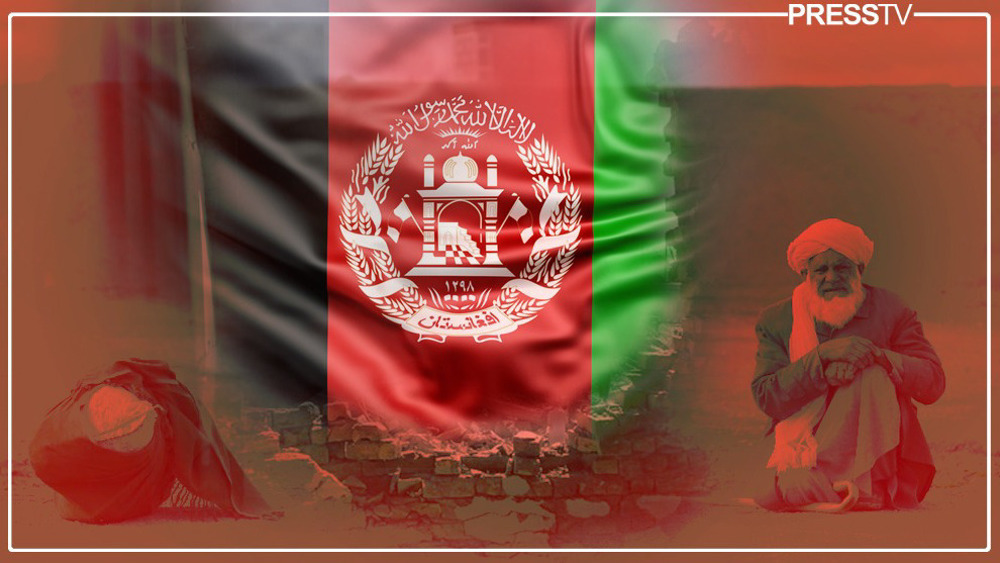
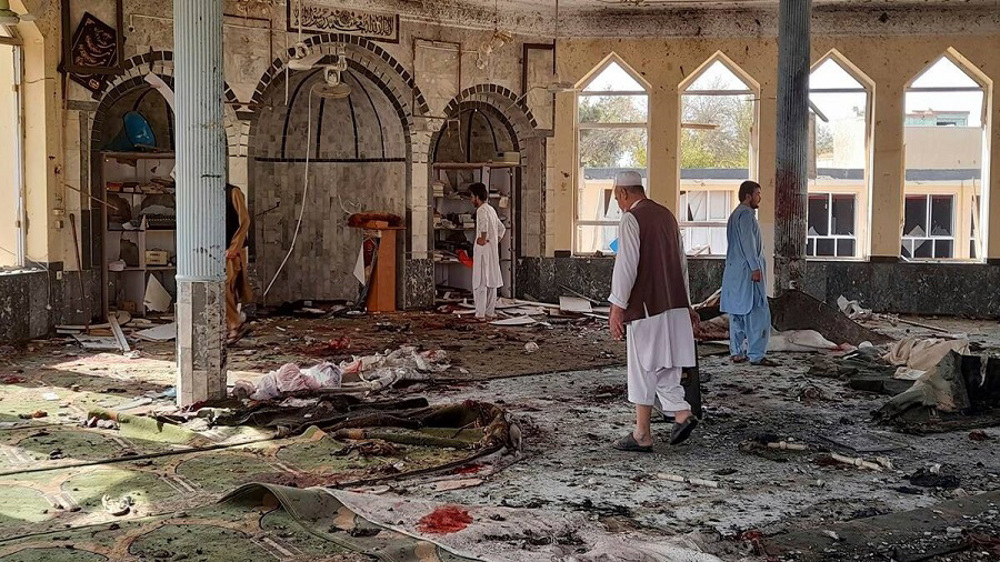
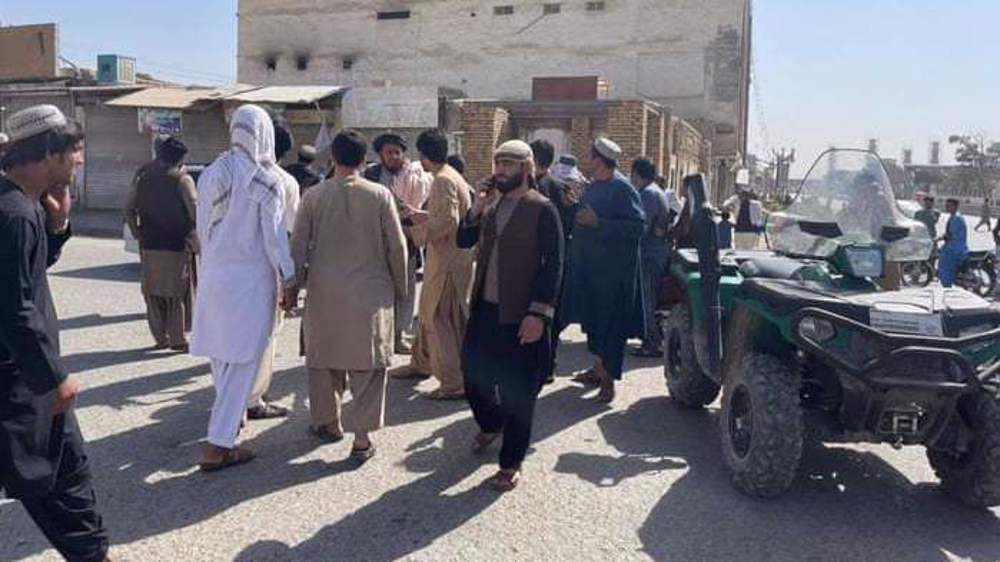
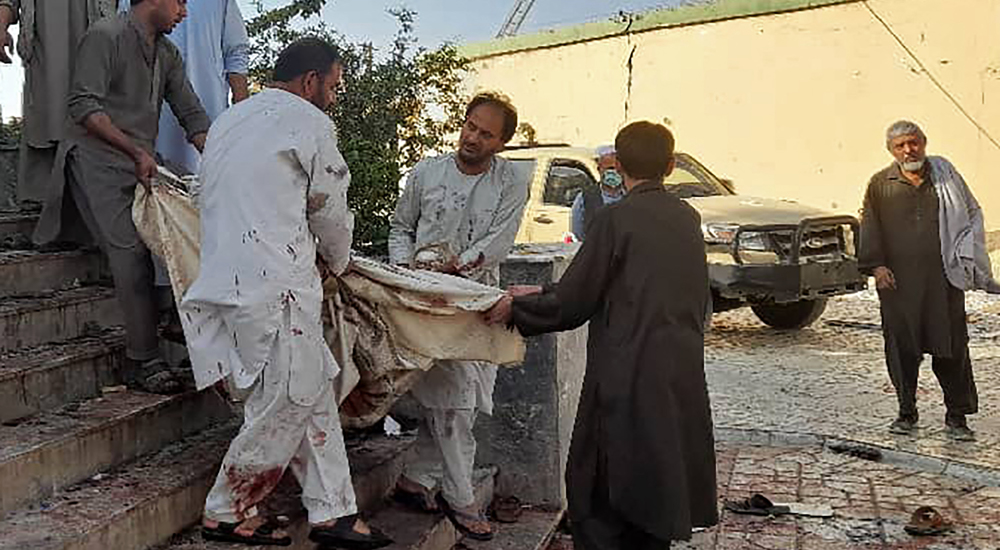
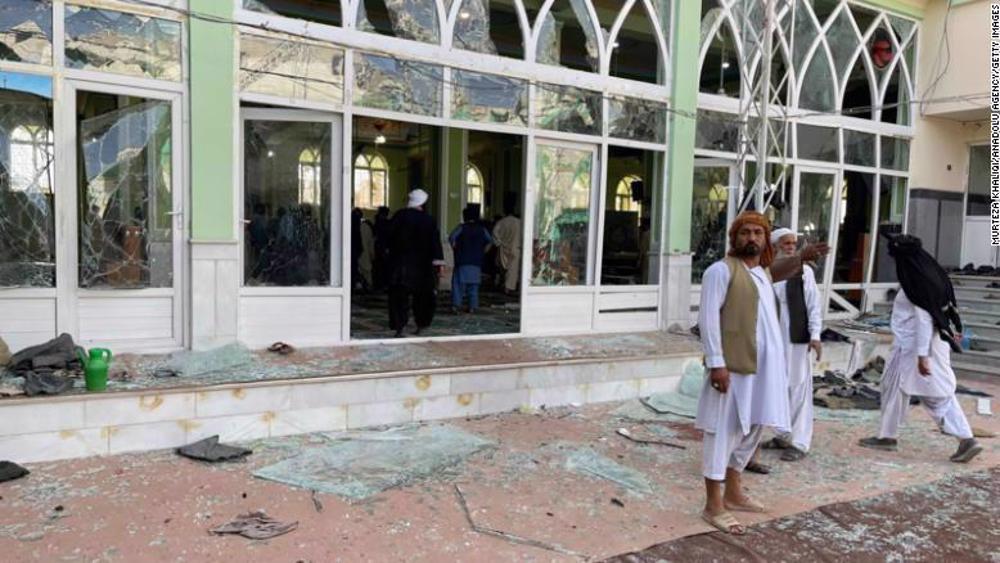
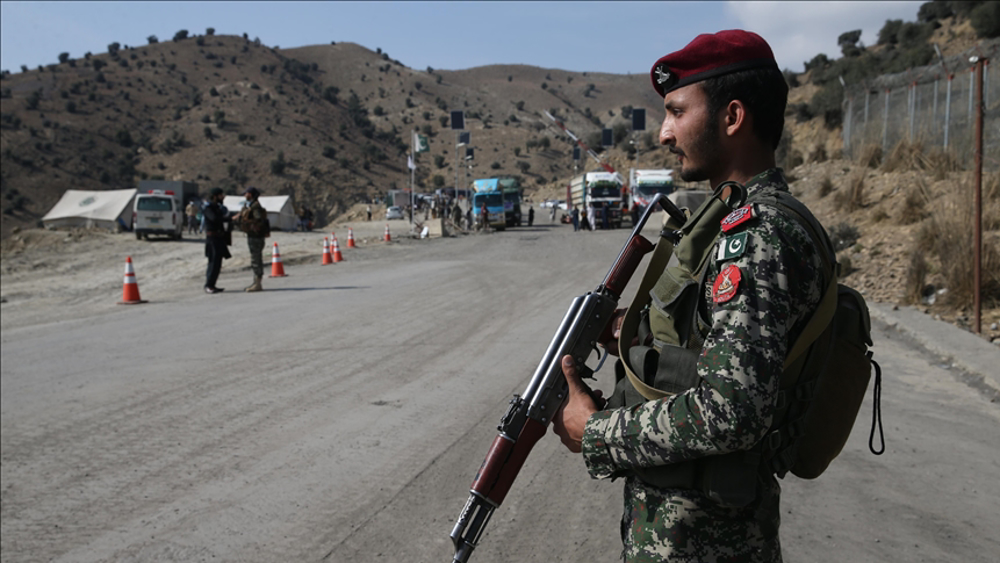

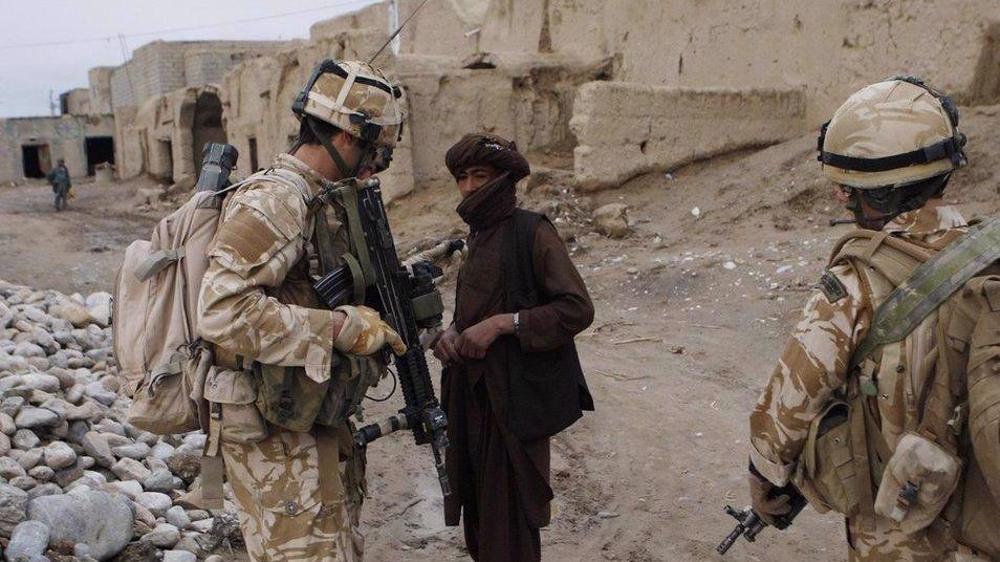



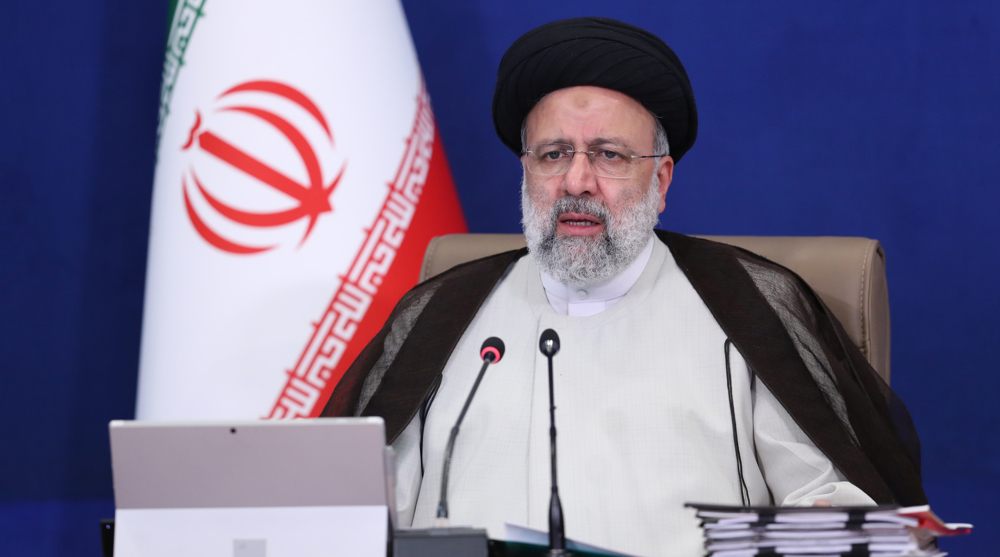
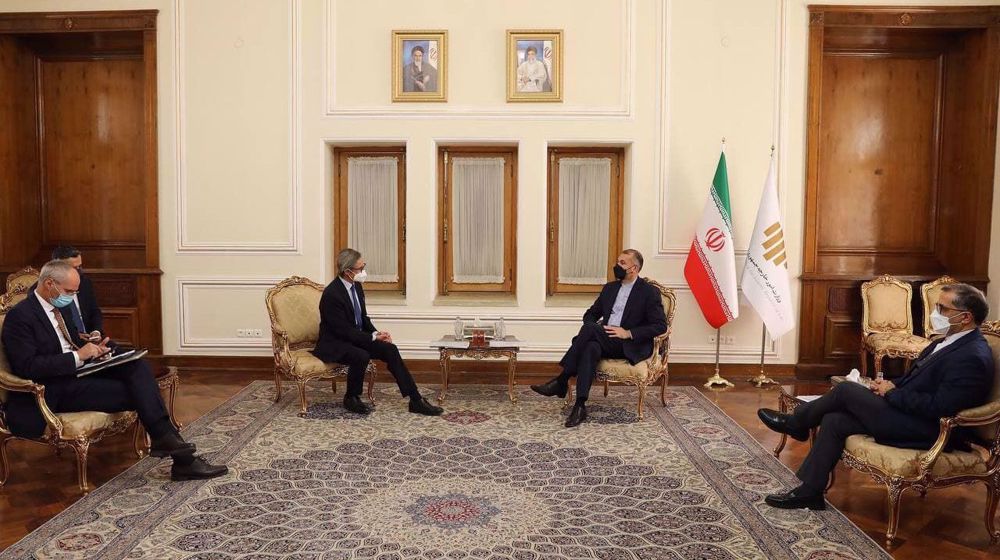
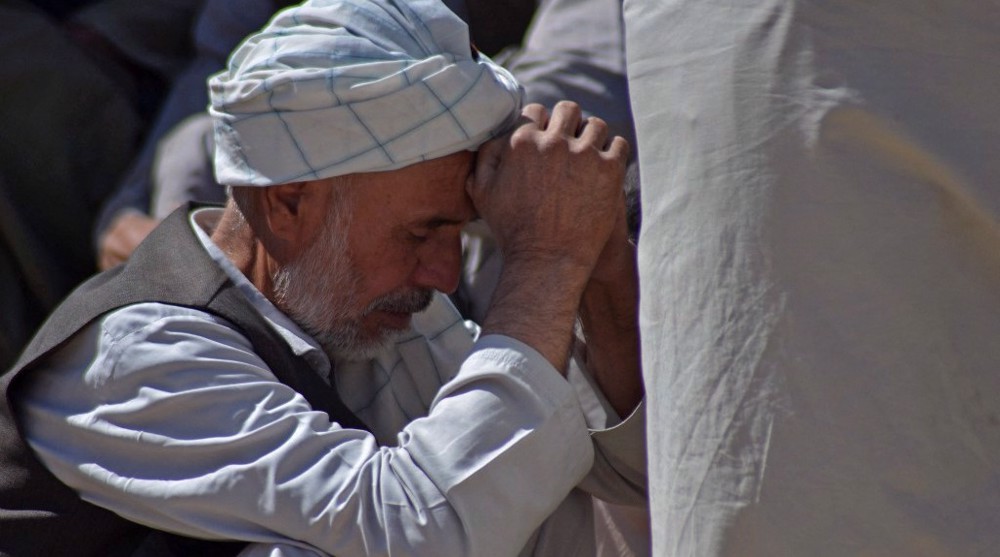
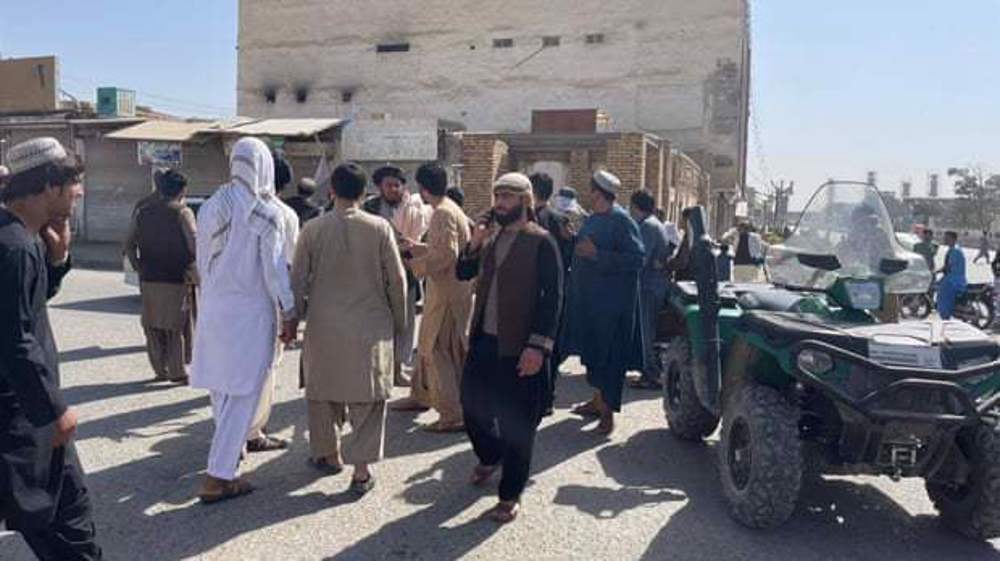
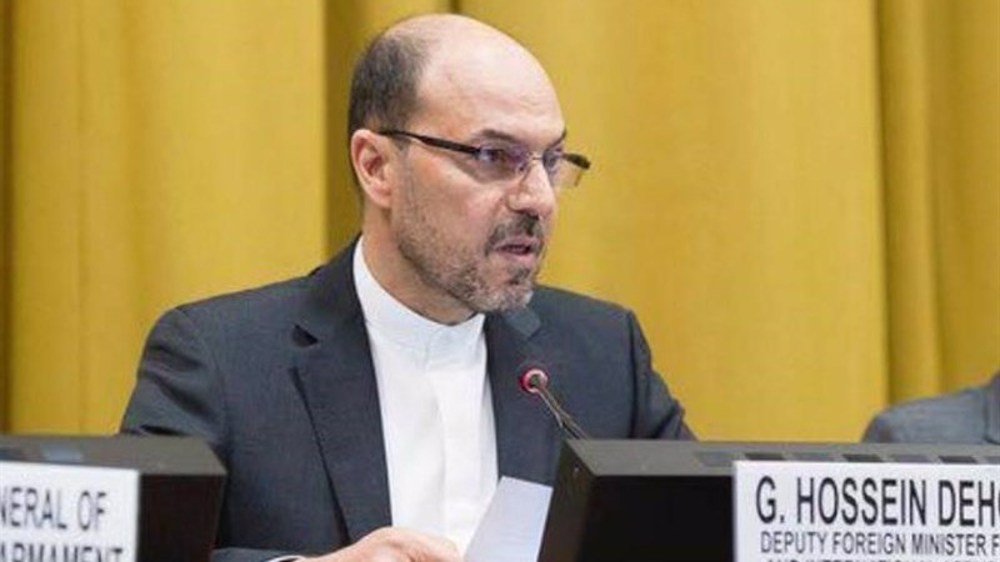
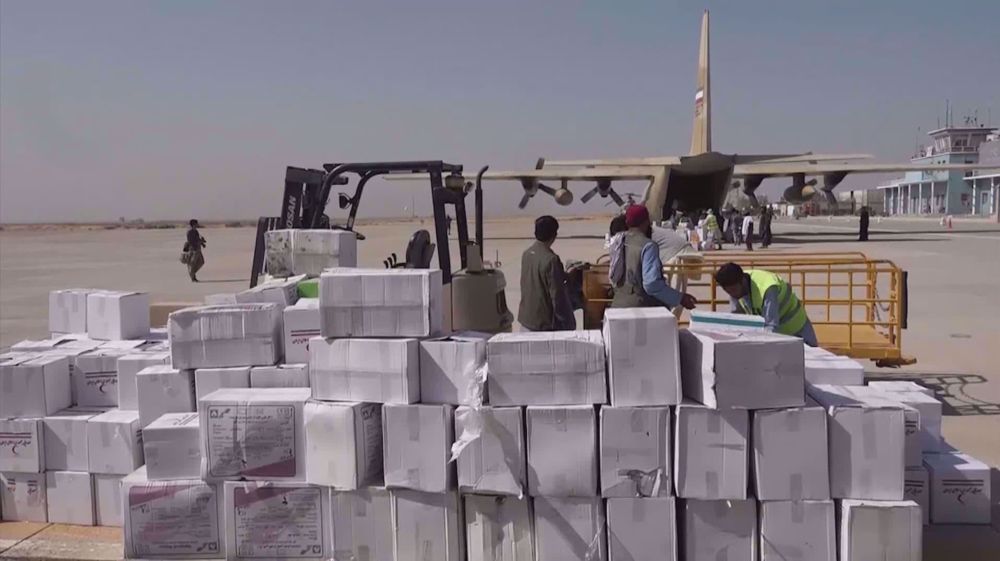
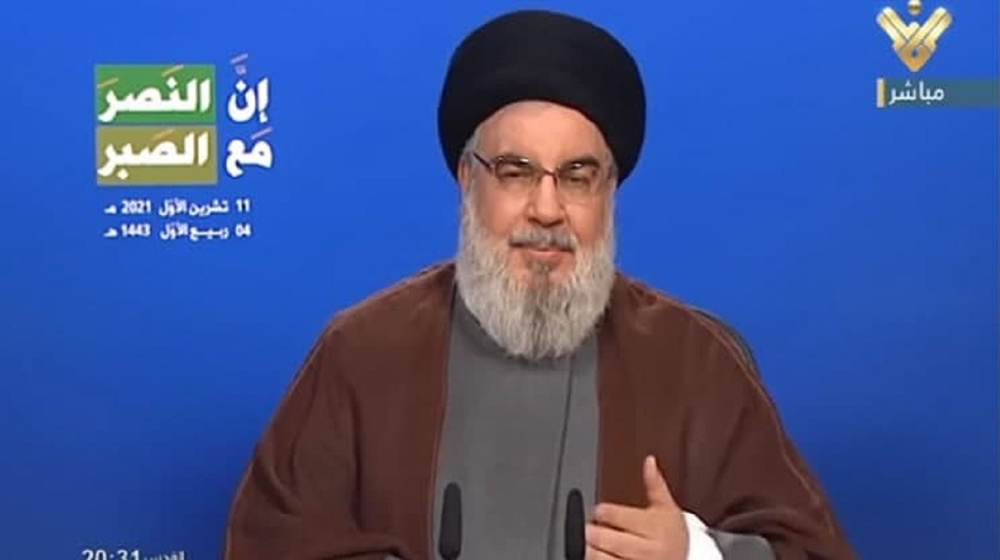

 This makes it easy to access the Press TV website
This makes it easy to access the Press TV website